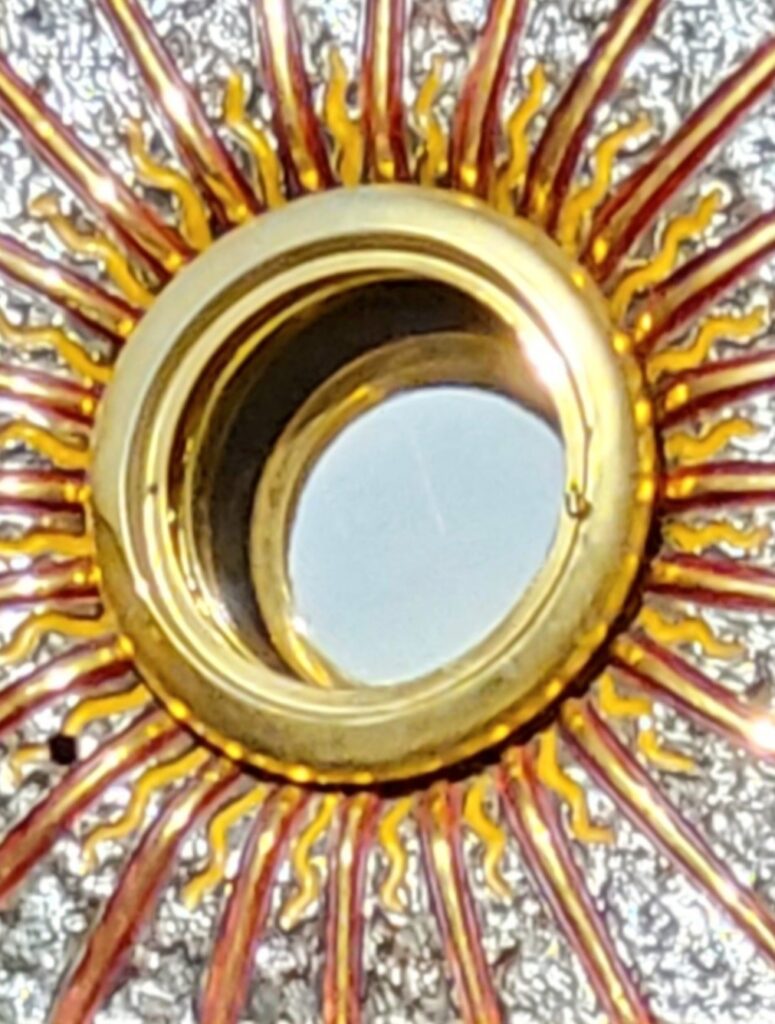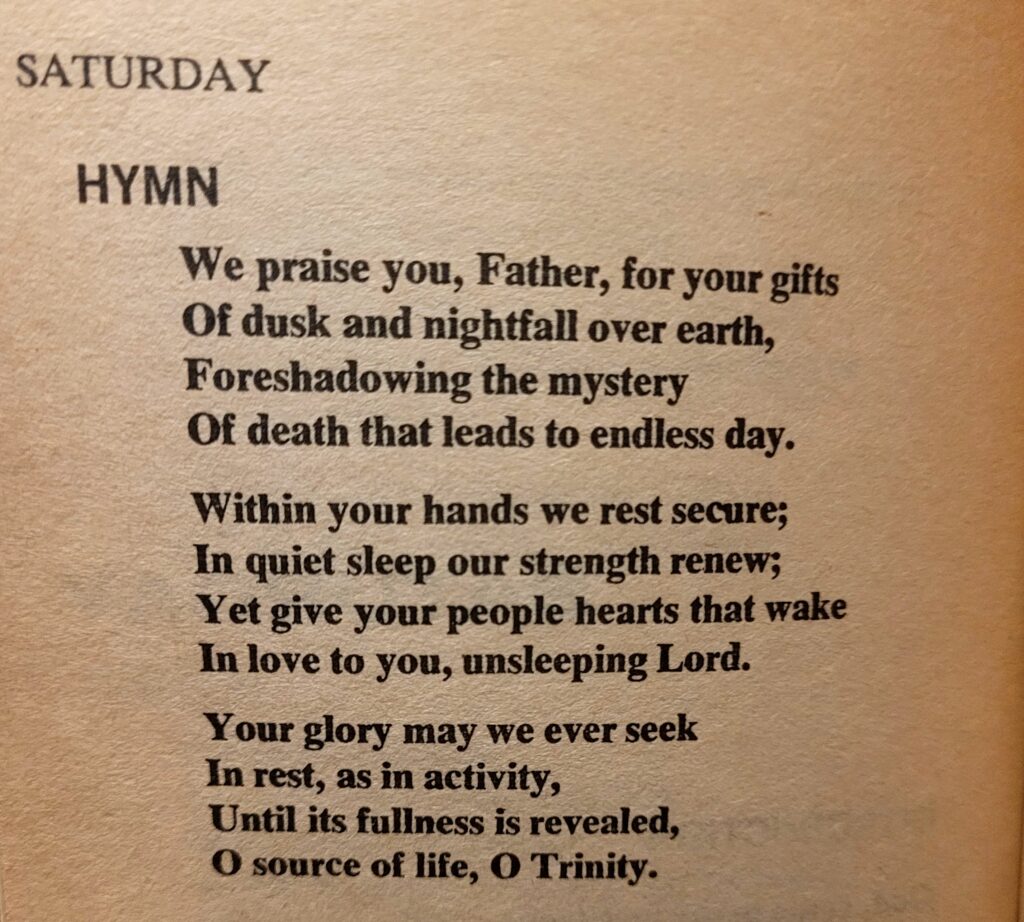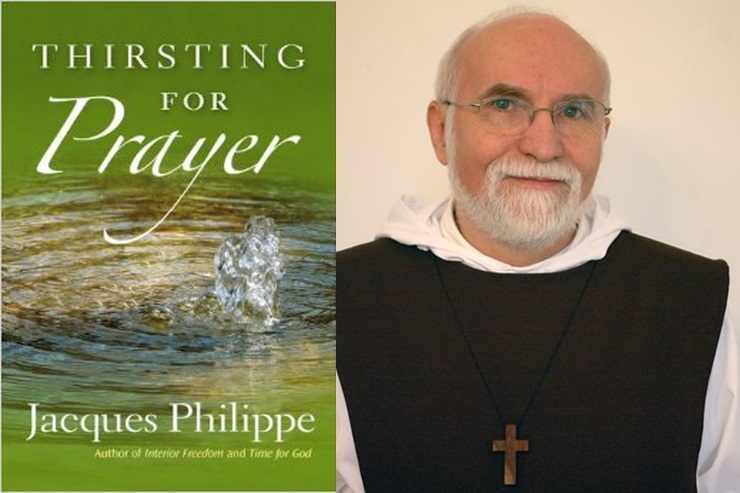Monthly Archives: January 2023

Eucharist


Night Prayer


Decreasing in order to Increase
Consequently, it is at the time they are going about their spiritual exercises with delight and satisfaction, when in their opinion the sun of divine favor is shining most brightly on them, that God darkens all this light and closes the door and the spring of sweet spiritual water they were tasting as often and as long as they desired. . . . God now leaves them in such darkness that they do not know which way to turn in their discursive imaginings. They cannot advance a step in meditation, as they used to, now that the interior sense faculties are engulfed in this night. He leaves them in such dryness that they not only fail to receive satisfaction and pleasure from their spiritual exercises and works, as they formerly did, but also find these exercises distasteful and bitter. … This change is a surprise to them because everything seems to be functioning in reverse.
St John of the Cross ‘Dark Night of the Soul’

The essence of prayer: LOVE
Prayer is a privileged place for love to be exercised, and hence deepened and purified. It is a marvelously effective school of love. It is a school of patience, faithfulness, humility, and trust, and these attitudes are the most genuine expressions of true love. Prayer is a school of love of God, love of our neighbor and also (not least importantly) charity toward our own selves.
In seeking to situate love’s place in the prayer life one might say it is the goal of prayer and also that, together with faith and hope, it is the main means to prayer. That may seem like a paradox, but it applies to many things in the dynamism of the spiritual life. The movements of the soul are circular, says Pseudo-Dionysius, a sixth-century Greek father.
St. Teresa of Avila insists on this point in her teachings on prayer. It is not a question of thinking a lot but of loving a lot. Just as well, she adds, because not all souls are gifted with imagination, but all are gifted with the power to love. –Father Jacques Philippe ‘Thirsting For Prayer’


Acceptance
The highest and most fruitful form of human freedom is found in accepting, even more than in dominating. We show the greatness of our freedom when we transform reality, but still more when we accept it trustingly as it is given to us day after day. It is natural and easy to go along with pleasant situations that arise without our choosing them. It becomes a problem, obviously, when things are unpleasant, go against us, or make us suffer. But it is precisely then that, in order to become truly free, we are often called to choose to accept what we did not want, and even what we would not have wanted at any price. There is a paradoxical law of human life here: one cannot become truly free unless one accepts not always being free! To achieve true interior freedom we must train ourselves to accept, peacefully and willingly, plenty of things that seem to contradict our freedom. This means consenting to our personal limitations, our weaknesses, our powerlessness, this or that situation that life imposes on us, and so on. We find it difficult to do this, because we feel a natural revulsion for situations we cannot control. But the fact is that the situations that really make us grow are precisely those we do not control.
Jacques Philippe, Interior Freedom

Higher call
Saint John of the Cross probes more forcefully here the need for a purification. The satisfaction that meditation had been providing, which is now painfully absent, may have been feeding a certain self-seeking in prayer. God begins to draw the soul away from a “lowly” manner of prayer that was to some degree rife with subtle tendencies of self-absorption. Meditative prayer may have become over time an effort to arrive at pleasing experiences for the self. Now God begins to strip this self-seeking from prayer by leaving the soul in dissatisfaction. In the view of Saint John of the Cross, a direct action of God, while concealed and secret, is implicitly present in the struggles that the soul undergoes at this time. These are not primarily struggles with a personal incapacity for prayer itself or a breakdown in general spiritual life. Rather, God is secretly at work emptying the soul in silent prayer for the sake of a greater encounter in faith with himself. The emphasis in the following passage from The Dark Night is on God’s watchful, overseeing role in the transitional period into contemplative prayer. The trials of that time are meant, not to impede prayer with insurmountable barriers, but to lead it to a new depth. The words in this passage of Saint John of the Cross begin with a sharp comment on meditative prayer. It is not that he is dismissive of this practice; it has its place in the formative period of spiritual life. But he is insistent that it is a type of prayer that must be forsaken with the advent of contemplative graces.
“Since the conduct of these beginners in the way of God is lowly and not too distant from love of pleasure and of self, as we explained, God desires to withdraw them from this base manner of loving and lead them on to a higher degree of divine love. And he desires to liberate them from the lowly exercise of the senses and of discursive meditation, by which they go in search of him so inadequately and with so many difficulties, and lead them into the exercise of spirit, in which they become capable of a communion with God that is more abundant and more free of imperfections. (Dark Night of the Soul)”
Father Donald Haggerty “St John of the Cross: Master of Contemplation”


Recent Comments